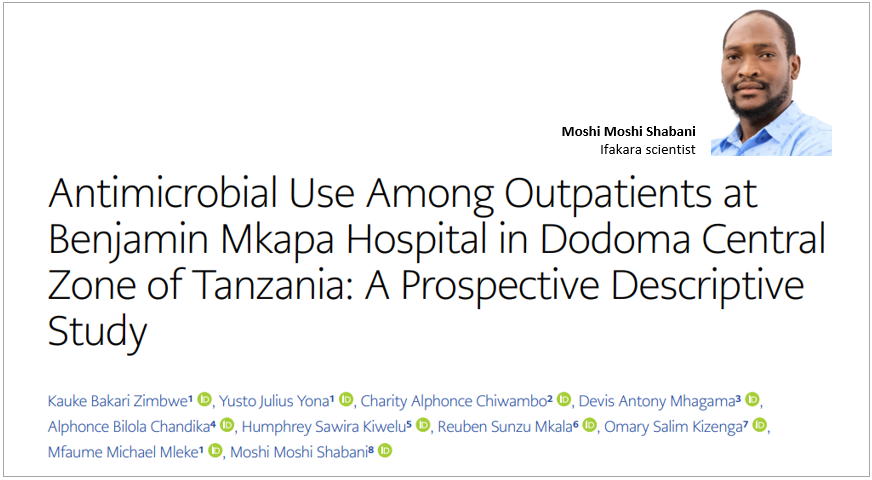
EVALUATION: Fighting resistance with effective prescription practices

Effective practices in prescribing antimicrobials can help to combat the global issue of antimicrobial resistance (AMR) in outpatient care, recent findings have shown from a study conducted at Benjamin Mkapa Hospital (BMH) in Dodoma, Tanzania.
WHO standards met, but more stewardship efforts needed
Evaluating over 1,500 outpatient prescriptions, the study found that BMH largely complies with World Health Organization (WHO) standards for antimicrobial use, and it recommends strengthening antimicrobial stewardship approaches and conducting further studies in specialized hospitals in Tanzania.
Analyzing outpatient prescriptions using WHO standards
Sharing their findings published in the Infectious Diseases & Clinical Microbiology journal, the scientists wrote, “This study looked at how antimicrobials (medicines that fight bacteria) are prescribed and used for outpatients at BMH in Tanzania. Using WHO guidelines, we reviewed 1,557 prescriptions to see how often and what types of antimicrobials were prescribed, and if they followed treatment standards.”
Scientists in the study, among them from Ifakara Health Institute Moshi Moshi Shabani, reviewed prescriptions from August to October 2022 using the WHO/INRUD (International Network of Rational Use of Drugs) indicators to assess trends in antimicrobial use (AMU) among outpatients.
BMH policies help limit antibiotic use
“We observed that antibiotics prescribed at BMH followed the WHO recommendation of no more than two antimicrobials per prescription. This may be attributed to the availability of hospital formulary, clinical auditing, internal and external supervision, and health insurance reimbursement restrictions. These factors greatly influence rational prescribing and contribute to fewer antibiotic prescriptions.”
The study found that 26.1% of prescriptions contained antimicrobials, aligning closely with WHO’s recommended range of 20-26.8%. Notably, 90.9% of these prescriptions adhered to Tanzania’s Standard Treatment Guidelines, underscoring BMH’s commitment to safe and effective prescribing practices.
“Our study found that BMH has achieved 100% drug utilization with all prescribed antimicrobials in generic names, complying with WHO recommendations. The hospital uses the Integrated Health Management Information System (IHMIS) for prescribing and has a formulary to guide medicine-related processes, including antibiotics,” they noted.
Single-drug prescriptions help prevent resistance
BMH also performed well in drug utilization measures, with all antimicrobial prescriptions meeting WHO recommendations for generic drug use and most being prescribed as single-drug treatments (monotherapy). This adherence helps reduce the risk of drug resistance and improves the quality of patient care.
However, the study noted areas for improvement. While the hospital met most WHO standards, only 42.9% of prescribed antimicrobials were in the "Access" category—recommended for general use—falling short of WHO’s target of over 60%. A significant percentage (47.6%) fell into the "Watch" category, which should be monitored carefully due to a higher risk of resistance.
Expanding stewardship programs to reduce AMR risks
The findings underscore the importance of expanding antimicrobial stewardship initiatives at BMH. Such programs aim to educate healthcare providers and patients on the responsible use of antimicrobials, to prevent the misuse that can lead to AMR.
As the first study to use WHO/INRUD indicators for monitoring outpatient antimicrobial use at a central zonal referral hospital in Tanzania, it provides a benchmark for future initiatives aimed at enhancing the fight against antimicrobial resistance. Conducted following the implementation of Tanzania’s first National Action Plan on AMR, the study paves the way for strengthened national efforts in safeguarding the effectiveness of essential medicines.
“This research shows that BMH is on the right track, but it also highlights the need for continuous efforts to reinforce safe prescribing practices,” the study concluded.
Read the publication here.
